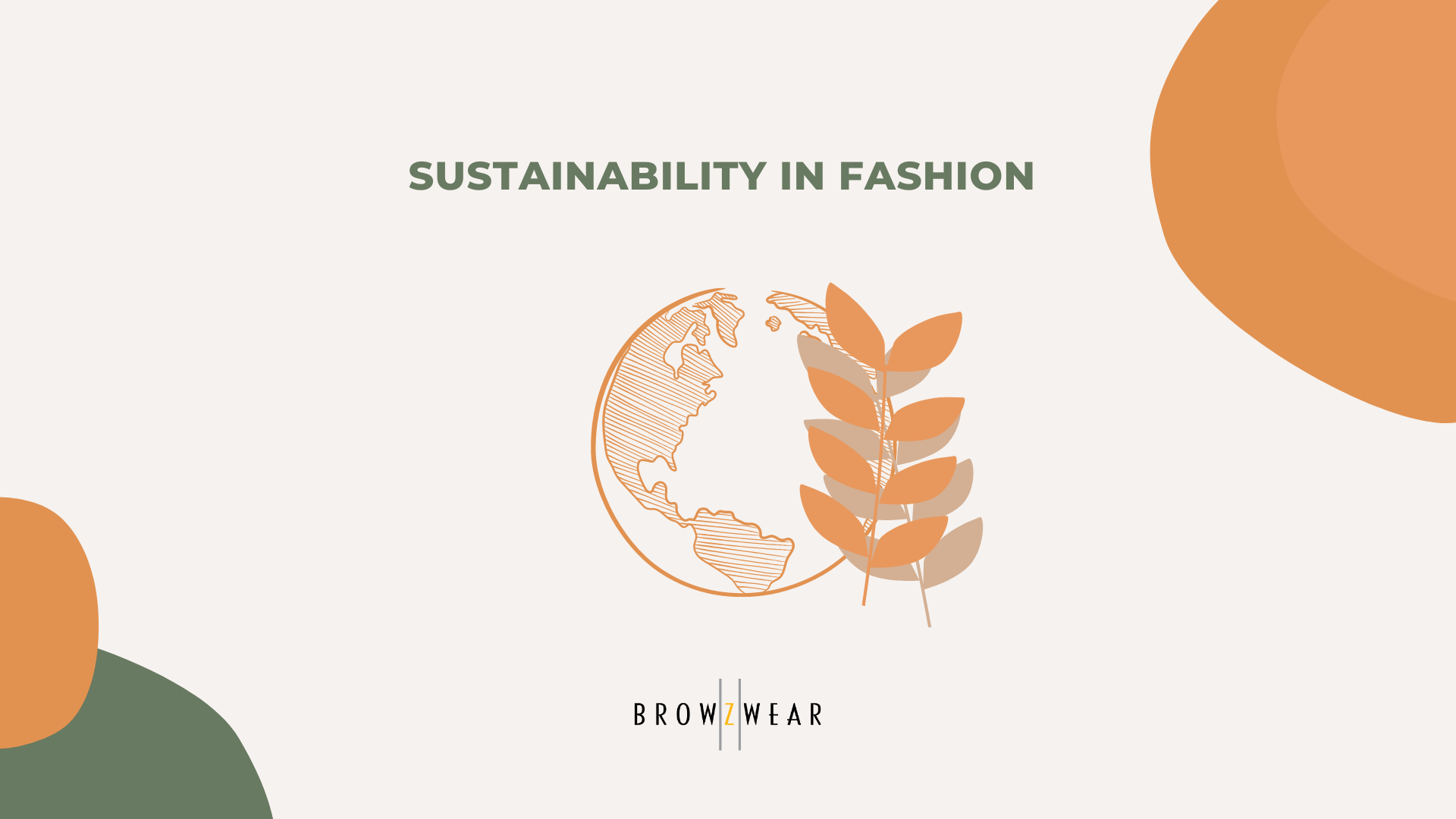VStitcher and Lotta 2021.3 Product Update
Reduce fabric waste and adds even more efficient ways to leverage 3D renderings throughout the design workflow.

We sat down with some of the fashion industry’s sustainability professionals, to learn how apparel businesses can lower their environmental impact and achieve a greener industry. From better fit to reduce returns to lowering waste levels through responsible consumption and building better sourcing practices.
Moving to 3D prototypes is one of the key ways to become a more environmentally responsible company, but there are many more ways to adopt sustainability. Here are some.
From designers and fit technology experts to sustainability consultants and fashion entrepreneurs, when it comes to driving forward environmental sustainability within the world of fashion, it’s clear that everyone has their own unique role to play across the entire value chain in order to make a difference. “We must create a balanced supply and demand chain that matches its products to the consumer, and that way, we can prevent damaging consequences like overproduction and deadstock, ” says Jessica Couch , Fit Technology Expert and Founder of Luxor + Finch Consulting. “Communication across the supply chain is key, that way we can gain a better understanding of what and why certain practices are not working,” adds Laura Gibson , Sustainable Fashion Consultant & Co-founder Lab 2030.
Therefore, to be able to create a sustainable product lifecycle from end-to-end, all departments must effectively collaborate throughout each stage of the process. “For upcoming or existing brands, it’s important to do an ecological 360 check on what impact on everything you do can not only have in the present, but five years from now…from the source of the garment through to manufacturing, distribution, and transportation all the way to the consumer,” shares Nina Gbor , Sustainable Fashion Educator. “We need to look at where the product ends up, and ultimately reverse engineer it,” adds Marije de Roos , Founder & CEO, Positive Fibers.
All of us can contribute to reducing the apparel industry’s environmental impact in one way or another, whether it’s shifting to more ecological fabrics or simply speaking out and getting our ideas heard to raise awareness. For sustainability experts like Marije de Roos, the first step in transitioning to a more sustainable approach is the materials that you use, which goes hand in hand with technology further down the line.
“ Sustainability can be embedded in the core of the business and every employee, no matter their role, can make an impact. We must adopt multifaceted solutions that allow us to overcome multiple challenges both environmentally and socially, ” says Sonia Hylling , Sustainability & Circular Fashion Consultant. Another important aspect is ensuring that your organization is aware of the potential or existing damage that its product is causing to the environment, as Stephane Popescu, Sustainable Fashion Catalyst and Co-founder and CEO at COSE361 notes, “ It is essential to measure the impact of your product in order to understand it and be able to improve your product’s environmental footprint. Every garment sold must be calculated and communicated across the entire ecosystem .”
Thus, as we look to the future it’s crucial that apparel organizations are willing to adopt more sustainable operations into their core strategy, as Christina Dean , Founder CEO The R Collective, Founder & Chair Redress suggests, “To best prepare for a more sustainable industry, it’s time to wake up to the need for change and keep up with where the industry needs to go. We all need to change our mindset in order to make a difference and start to think about how to increase fabric utilization and improve technical processes. ” In fact, being willing to adopt new strategies and step out of our comfort zone is fundamental to driving change. “ Instead of leaving your current role, make the changes from where you are, partner with others to divert waste. For example, if you’re a patternmaker shift to 3D software, or if you’re in merchandising switch to virtual showrooms. There are endless alternatives that can be explored,” adds Libby Fearnley , Fashion Industry Transformation Advocate.
From unsold inventory to extreme textile waste, the fashion industry continues to be one of the most wasteful and polluting industries globally, leaving damaging long-term impacts on the environment in many different ways.
The fashion industry encounters 64 Billion Dollars of returns annually
The fashion industry produces 50 Billion Dollars worth of dead inventory each year
15 Million Dollars worth of textile waste in the US alone ends up in landfills
One garbage truck of textile waste is landfilled every second globally
If the industry continues on its current path we will miss the 1.5-degree pathway by 50%
The fashion industry contributes to about 10% of global climate change
 Christina Dean
Christina Dean Christina Dean is a sustainable fashion advocate who founded Redress, the NGO with a mission to reduce waste in the fashion industry, in 2007 in Hong Kong which is widely recognised as being a major influencer in driving awareness and action around sustainable fashion globally. In 2017, she co-founded The R Collective, the social impact up-cycled fashion brand designed by emerging designers using luxury waste.
Christina has received numerous recognitions for her work, including by UK Vogue as being one of the UK’s ‘Top 30 Inspirational Women’ and by Hong Kong Tatler as a ‘Generation T’ for contribution to shaping Hong Kong’s future. Christina was a Levi Strauss & Co. Collaboratory Fellow of 2019 and is currently a UBS Global Visionary .
Instagram: @getredressed | LinkedIn: @RedressAsia @christinadean | Website: redress.com.hk
 Jessica Couch
Jessica CouchJessica Couch is a fit technology expert and the founder of Luxor + Finch Consulting, a fit technology research company. Additionally, Jessica is the principal consultant and co-founder of Fayetteville Road Agency, Fayetteville Road is a turnkey boutique agency that leverages retail technology to build custom solutions , match people to products and create innovative experiences for the newly inclusive marketplace. Jessica received her undergraduate degree from North Carolina State University’s College of Textiles in Fashion Product Development and her Master’s in Digital Innovation and Fit from Cornell University under the guidance of Professor Susan P Ashdown. In 2018, she received her certificate for Digital Product Management: Modern Fundamentals from the University of Virginia.
Instagram: @luxorandfinch @wocworldwide | Website: fittechdirectory.com
 Sonia Hylling
Sonia HyllingI am a sustainability & circular fashion consultant convinced that sustainability has its place in the core business strategy. I specialize in circularity and innovation with a decade working with luxury companies, start-ups, and non-profit organizations. I support fashion companies towards responsible business operations, driving transformation through supply chain strategy, disruptive innovation, and best ESG practices. Influenced by a multicultural background and I am recognized for facilitating change with a love of learning and collaborating on positive impact projects. My goal is to Reverse Climate Change, Create Social & Economic Prosperity, Build a Circular and Regenerative Future, Promote Responsible Consumption and enhance Community Building.
Webiste: soniahylling.com
 Nina Gbor
Nina GborAs the founder of Eco Styles, Nina Gbor is an award-winning sustainability advocate, ethical fashion speaker, climate activist, writer and educator. She is a proponent for international development, global female empowerment & equality. She coined the phrase ‘get off the fashion trendmill’ which means individuality and self-esteem should be the premise for consuming clothing, not fashion trends. Nina has a master’s degree in International Development and is a former sustainable fashion tutor in short courses at RMIT University in Melbourne, Australia. She is now the Development Editor of The Wardrobe Crisis.
Instagram: @eco.styles | Website: ecostyles.com.au
 Stéphane Popescu
Stéphane PopescuI believe in a world where companies are bringing positive impact to our planet, to its biodiversity and to humanity. For more than 15 years, I dedicated myself into accelerating the sustainable transition of fashion ecosystem. This why I created COSE361, a consulting company specialized in sustainable fashion with 3 expertise : eco-design, traceability and environmental impact, circular fashion.
Website: cose361.com | LinkedIn: @cose361 @stephane-popescu-sustainable-fashion
 Laura Gibson
Laura GibsonLaura is a London based fashion sustainability consultant who has worked as a designer and collections manager at a number of SME luxury brands. With over ten years of industry experience in fashion design, product development and creative project management, her career is now focussed on promoting industry best practice and purposeful business development. Laura is a co-founder of Lab 2030 and is also studying for a Masters in Sustainability Leadership from the University of Cambridge (CISL) with a thesis exploring the barriers and challenges to sustainable supply chain management. Laura is an advocate of cross industry collaboration and promotes a systems thinking approach to paradigm shifts across the apparel and textiles sector .
LinkedIn: @lauragibson | Website: lab2030.earth
 Libby Fearnley
Libby FearnleyLibby Chisholm Fearnley is a writer, educator and advocate for fashion industry transformation. Libby began her career as a womenswear designer for corporate-sized brands and retailers. She left after a decade to start a family and, through parenting and living abroad, became interested in sustainability. She studied sustainable design at the Fashion Institute of Technology and now consults in many capacities: as a copywriter for sustainable brands, an independent educator and a guest speaker. She is an instructor for FIT’s Sustainable Design certificate program, offering a revolutionary course of her own design, “Current Events & Innovations in Sustainable Fashion.” Her goal is to keep up with industry solutions, compile what’s important, and deliver that information to students, companies and non-profit organizations that don’t have the time to keep up. Libby wants to start a ripple effect of change— the fashion industry has the power to heal global communities and entire ecosystems. Her passion extends to her home life: she works hard to help her three boys understand and respect where their clothes come from.
Email: libby@materialepiphany.com
 Marije de Roos
Marije de Roos Marije is a Dutch born renegade economist on a mission to put the ECO into eCommerce. After watching a life altering documentary, she embarked on her mission to make fashion a catalyst for the circular economy. With her company Positive Fibers, she works directly with emerging designers trained in 3D software to embrace the cleanest ways to great design. Marije is passionate about bringing the worlds of Science and Arts together through Technology and this is embodied by Positive Fibers.
Instagram: @circularfashiondetective @positive fibers | Twitter: @circularfash | Clubhouse: @circularfashion | LinkedIn: @marijederoos @positive-fibers | Website: positivefibers.com
Reduce fabric waste and adds even more efficient ways to leverage 3D renderings throughout the design workflow.
Here are 5 of the many ways in which apparel organizations are utilizing 3D technology to elevate their apparel workflows.
Looking for ways to expand your knowledge base? Want to get up to speed with the latest trends in apparel design? Now you can earn a 3D Apparel Design